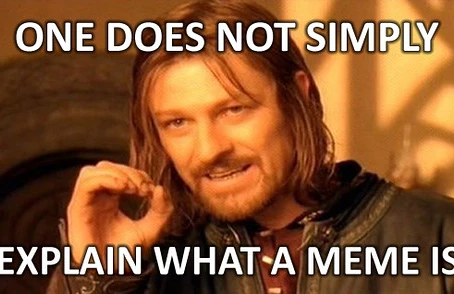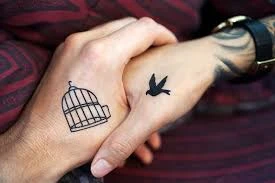Imagine, the details of your private life being leaked in the public without your consent. The lives of celebrities have become so public that people have almost forgotten that they have a private life too. This is where their privacy is attacked constantly. Other than this, it can also be looked at in a commercial sense. The pictures of celebrities, any famous dialogue from a movie or a package claiming to give a chance to spend a day with them or speak to them and hundred other kinds of deals are used just to promote and sell their products. All of this is justified when it is done with the prior consent and knowledge of these celebrities, the issue arises when it is done without their consent. This is where intellectual property rights come into the scene. Hence, with the presence of these activities, there is a dire need to recognize celebrity rights within the sphere of intellectual property rights and protect the interest of celebrities.
Who is a celebrity?
To understand celebrity rights, we first need to understand as to who is a celebrity. Under the ‘direct commercial exploitation of identity’ test, when an unauthorized use of a person’s identity is made that is both direct in nature and commercial in motivation, the person whose identity has been misappropriated has by definition become a celebrity for right of publicity purposes.
There is no mention of the definition of celebrity under the Indian Trademarks Act, 1999. There is no specific definition mentioned under the Indian Copyright Act, 1957 either but the same can be understood by the definition of performer. As per Section 2 (qq) of Indian Copyright Act, 1957, the word performer refers to “an actor, singer, musician, dancer, acrobat, juggler, conjurer, snake charmer, a person delivering a lecture or any other person who makes a performance”.
Celebrity Rights
There is a bundle of rights accredited to the celebrities, like Personality Rights (with an extension to an individual’s property and contribution to society), Privacy Rights and Publicity Rights (refers to the right given to an individual to control the commercial use of his/her name or identity as held in Midler vs. Ford Company and Ors)
Need for the protection of Celebrity Rights
To begin with, it is known that celebrity rights can be assigned and licensed. In the current scenario where marketing and publicity plays a huge role in the sale of a product, the fame of a celebrity is pivotal. A lot of money is spent in endorsing products through advertisements by celebrities and therefore, it calls for a serious consideration for these rights to be protected.
Provisions under IP Laws with respect to Celebrities in India
Trademark
The significance of registration of a trademark is two-fold with regard to Celebrity Rights. Firstly, the celebrity approves of assignment and licensing of his personality rights for various goods and classes in which the same is registered. Secondly, such registration gives the right to celebrity to take an action against unauthorized users of these rights. In India, the protection provided under Trademarks Act, 1999 is limited in scope. This opportunity was utilized by Shahrukh Khan and his name is now registered as a trademark under 27 classes of goods and services under the trademark law of India and seen in Gautam Gambhir vs D.A.P & Co. & Anr and Arun Jaitley v Network Solutions Private Limited.
Some protection is also provided under Section 14 of the Trademarks Act, 1999. Section 14 restricts the use of personal names without the prior consent of such a person if he is a living person. If the person is deceased, consent is required from the legal representative of that person. This protects the personality rights to some extent.
Copyright
There is no straight jacket formula to tell us as to what aspects of celebrity rights can be protected under the Copyright law. Reproduction or creation of an image of celebrities can be protected by obtaining copyright for the same. Though, the protection is limited but it is also exclusive. What is needed to be proved in order to bring about a suit for infringement of copyright is to establish ownership in that particular thing and copying of the same. The main issue that arises in the case of photographs of celebrities is the lack of proof of ownership.
As per Section 38 of the Indian Copyrights Act, 1957, performers have been granted some rights and these rights are known as “performer’s rights”. These rights subsist for a period of 50 years from the next calendar year when the performance was done. Till the subsistence of these rights, any unauthorized copying of such work will call for an action of copyright infringement. The same rights have been provided to an author under Section 57 of the Indian Copyrights Act, 1957.
Protection of Celebrity Rights under the Indian Constitution
There is no specific statute which protects the celebrity rights in India. The position and development of laws governing celebrity rights is still at a budding stage in India. Therefore, protection is taken from various statutes and law. One of the most important provisions in contained in the Indian Constitution as a fundamental right under Article 21 i.e. Right to Life as seen in ICC Development (International) Ltd v Arvee Enterprises.
In a recent landmark judgment of Justice K.S. Puttuswamy vs. UOI, it was held that “Every individual should have a right to be able to exercise control over his/her own life and image as portrayed to the world and to control commercial use of his/her identity. This also means that an individual may be permitted to prevent others from using his image, name and other aspects of his/her personal life and identity for commercial purposes without his/her consent”.
Laws in other countries
USA
The protection of celebrity rights is most advanced in the United States. If a name, mark, image, slogan or anything of this sort is used unauthorized, which holds certain resemblance with a celebrity, it gives the right to celebrity to claim damages for the same. Protection under the Copyright Act is provided for the images of celebrity. The first right over an image is of the photographer, but as soon as it is transferred to another person for economic benefit, celebrity has the right over it. Celebrity rights are also protected under Lanham Act (trademark law), Anti-cyber Squatting Protection Act and the Federal Trademark Dilution Act.
UK
The laws in UK in this regard are almost at par with the laws in India. There is no specific mention of celebrity rights in the legal regime. The Trademarks Act 1994 provides protection only to the registered trademarks. Therefore, if the name of the celebrities is not registered, no protection will be accorded to them. It was held in the case of Re: Elvis Presley Trademarks, Inc that the name “Elvis Presley” couldn’t be registered as it did not contain any distinctive quality. The celebrities can be granted protection in relation to their photographs and films under The Copyrights, Designs and Patent Act of 1988 (CDPA). This is also done only when the work is commissioned. However, even the commissioned work can only prevent the “substantial part” of the photograph or film.
Conclusion
Celebrity Rights are an important aspect of an artist. Just like everyone else, they also have the right to privacy and the right to control as to who knows the details about them and who doesn’t. In India, there is a provision for the protection of economic rights but the protection of moral rights still needs consideration. Therefore, it is only through enactment of specific provisions in this regard that we can deal with this issue. From the above mentioned case laws, it is clear that the judiciary has recognized the existence of celebrity rights time and again. It is now on the legislature to take this matter into their hands and fill this gap. This will help us protect the right of our celebrities and match the pace with rapid commercialization in this sense.


